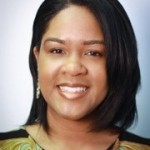 Crystal is an Academic Professional Assistant Professor in the Department of Public Health Education at UNCG. She joined the department in August 2016. Currently, she teaches six classes in the department, focusing on program planning and evaluation,community engagement and fieldwork. This emphasis comes from Crystal’s expertise in community recruitment, which she developed while working for Durham County. She applies this expertise in community recruitment to academia when recruiting students to the Public Health Program and even more specifically, the Lloyd International Honors College, for which she is the liaison.
Crystal is an Academic Professional Assistant Professor in the Department of Public Health Education at UNCG. She joined the department in August 2016. Currently, she teaches six classes in the department, focusing on program planning and evaluation,community engagement and fieldwork. This emphasis comes from Crystal’s expertise in community recruitment, which she developed while working for Durham County. She applies this expertise in community recruitment to academia when recruiting students to the Public Health Program and even more specifically, the Lloyd International Honors College, for which she is the liaison.
Professionally, Crystal has a background in health disparities related to breast cancer outcomes among African American women; but is now expanding her work to include structural racism within the healthcare system. She is a member of many active groups, including the Greensboro Health Disparities Collaborative (GHDC). This organization has received funding from the National Institutes of Health. With this funding, they have worked to successfully close racial gaps among African American breast and lung cancer patients in the Cone Health System.Currently, Crystal is a part of writing a book chapter related to the research of GHDC which is addressing structural racism in the healthcare system.
In addition to her academic appointment, Crystal is a part-time wellbeing coach for Wake Forest University’s Thrive program. She is also an active facilitator for UNCG’s Health Coach Training Program. She says she became a health coach because she employed health coaching skills while providing diabetes health education to the rural, underserved population in eastern North Carolina. The training was recommended to her by a few colleagues in the department and ultimately the department chair, Tracy Nichols. Regina McCoy of UNCG’s Health Coach Training Program then recruited her for Thrive, where she currently has 8 clients she sees weekly.
Crystal has encountered a few challenges transitioning into health coaching from her role as a health educator. She describes these challenges as: no longer providing solutions (not an educator), but being an ally , and learning to be authentically present for extended periods of time. It was imperative that she allowed herself to have the coaching mindset shift in order to overcome these challenges. She discovered letting the clients lead in setting their goals was the most effective way to empower her clients. In her words: “Coaching is like a tango dance, I always follow their lead”.